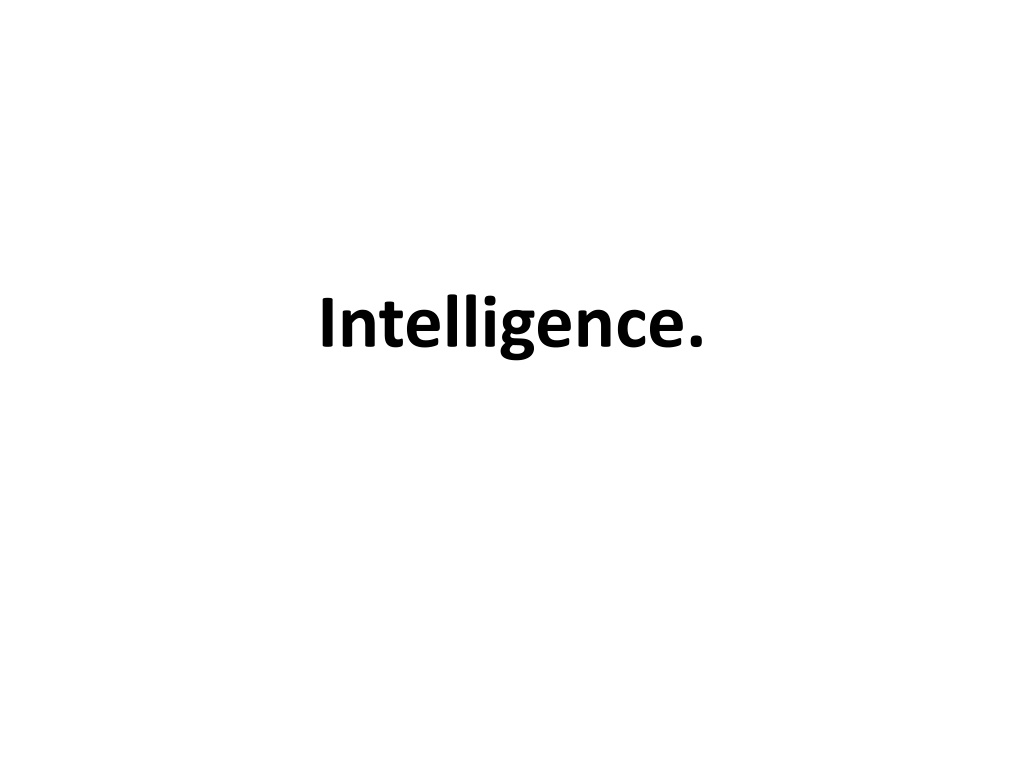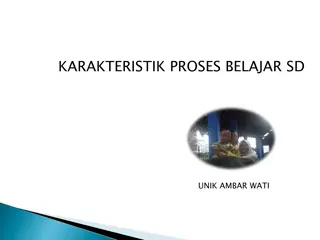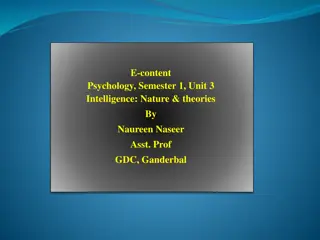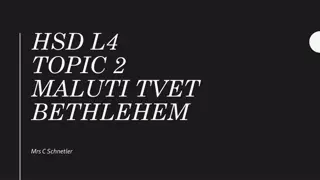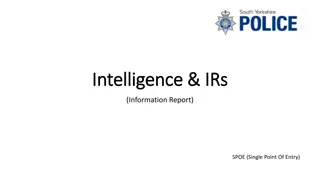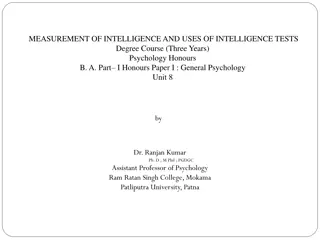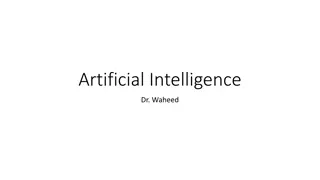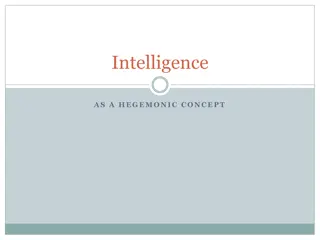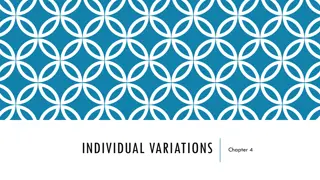Understanding Different Theories of Intelligence
Intelligence encompasses various abilities including adaptability, capacity for knowledge, reasoning, and more. Theories such as Spearman's two-factor theory and Sternberg's Triarchic Theory offer insights into different aspects of intelligence, highlighting factors like problem-solving abilities, creative thinking, and adaptability to changing environments.
Download Presentation

Please find below an Image/Link to download the presentation.
The content on the website is provided AS IS for your information and personal use only. It may not be sold, licensed, or shared on other websites without obtaining consent from the author. Download presentation by click this link. If you encounter any issues during the download, it is possible that the publisher has removed the file from their server.
E N D
Presentation Transcript
What is Intelligence Intelligence is the ability to learn about, learn from understand, and interact with one s environment. This general ability consist of a number of specific abilities : 1. Adaptability to a new environment or to change in the current environment 2. Capacity for knowledge and the ability to acquire it 3. Capacity for reason & abstract thought 4. Ability to comprehend relationships 5. Ability to evaluate & judge 6. Capacity for original and productive thought
Definitions Spearman (1904) A general ability which involves mainly the eduction of relations and correlates Binet & Simon (1905) The ability to judge well, to understand well, to reason well Terman (1916) The capacity to form concepts and grasp their significance Wechsler (1939) the aggregate or global capacity of the individual to act purposefully, to think rationally, and to deal effectively with the environment
Types of Intelligence 1) IQ, intelligence Quotient, material capital, rational intelligence, what I think. 2) EQ, emotional intelligence , social capital, what I feel. 3) SQ, spiritual intelligence, spiritual capital, what I am
Theories of Intelligence Spearman s two-factor theory It was developed in 1904 by an English Psychologist, Charles Spearman, who proposed that intellectual abilities were comprised of two factors : one general ability or common ability known as G factor and the other a group of specific abilities known as S factor. G factor is universal inborn ability. Greater G in an individual leads to greater success in life. S factor is acquired from the environment. It varies from activity to activity in the same individual
Theories of Intelligence Robert Sternberg: Triarchic Theory of Intelligence Robert Sternberg defined intelligence as "mental activity directed toward purposive adaptation to, selection, and shaping of real-world environments relevant to one's life." Sternberg proposed what he referred to as "successful intelligence," which involves three different factors: Analytical intelligence: Your problem-solving abilities. Creative intelligence: Your capacity to deal with new situations using past experiences and current skills. Practical intelligence: Your ability to adapt to a changing environment.
Theories of Intelligence Raymond Cattell theory of intelligence Psychologist Raymond Cattell first proposed the concepts of fluid and crystallized intelligence. He suggests that intelligence is composed of different abilities that interact and work together to produce overall individual intelligence
Theories of Intelligence Fluid Intelligence Cattell defined fluid intelligence as "the ability to perceive relationships independent of previous specific practice or instruction concerning those relationships." Fluid intelligence involves being able to think and reason abstractly and solve problems. This ability is considered independent of learning, experience, and education.
Crystallized Intelligence Crystallized intelligence involves knowledge that comes from prior learning and past experiences. Situations that require crystallized intelligence include reading comprehension and vocabulary exams. Crystallized intelligence is based upon facts and rooted in experiences. As we age and accumulate new knowledge and understanding, crystallized intelligence becomes stronger.
IQ tests lists Stanford-Binet Intelligence Scales (SB5) Wechsler Adult Intelligence Scale (WAIS) Wechsler Intelligence Scale for Children (WISC) Wechsler Preschool and Primary Scale of Intelligence (WPPSI) Differential Ability Scales (DAS) Woodcock-Johnson Tests of Cognitive Abilities (WJ)
